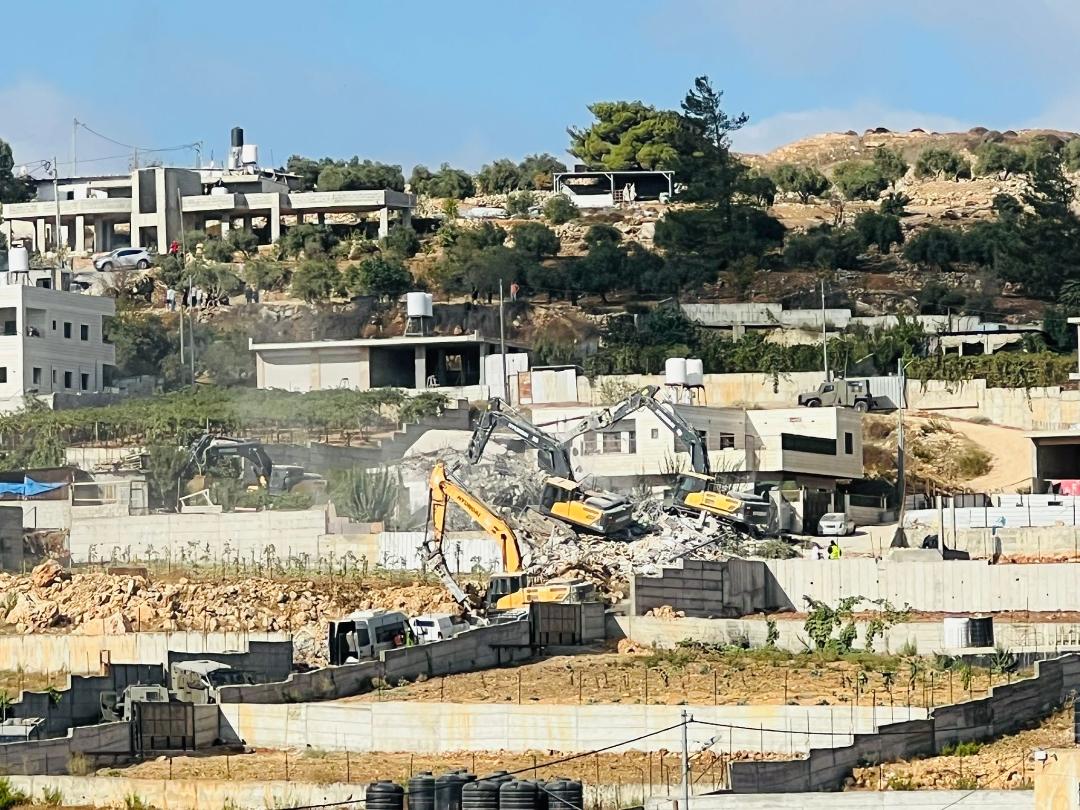GAZA, March 22, 2010 (WAFA)- Al Mezan Centre for Human Rights believes the so-called goodwill gestures, announced by the Israeli Prime Minister Benjamin Netanyahu, to ease the siege on the Gaza Strip are futile.
These measures will not mitigate the human rights and humanitarian crisis across the Strip. They declare Israel's intention to maintain the policy of collective punishment of the 1.6 million people who make up the population of the Strip.
The Israeli Prime Minister has promised to permit the UN construction materials for the finishing of 150 housing units in Khan Younis, the flour mill and a sewage treatment plant in Middle Gaza.
'The blockade on the Gaza Strip constitutes unlawful collective punishment. These so-called goodwill gestures will neither alter that fact nor the political and economic isolation that the 1.6 million Palestinian people experience on a daily basis,' said Issam Younis, Director of Al Mezan.
These measures have been announced as part of a series of goodwill gestures aimed at ameliorating the international community's criticism of Israel in recent days. The measures reportedly include the release of Palestinian prisoners, discussion of all core issues during the proximity talks and the avoidance any further embarrassment over settlement building.
There has been growing condemnation of the siege by the international community, including by the UN Secretary General who during his visit to the Gaza Strip described Israel's policy of closure as 'not sustainable and it is wrong.' The international Quartet of the European Union (EU), Russia, the United Nations (UN) and the United States (US) also expressed concern at the 'continuing deterioration in Gaza, including the humanitarian and human rights situation of the civilian population'. However, despite the strongest condemnation yet from the US, EU and the Quartet, Israel has refused to revoke the settlement plans for 1600 housing units in East Jerusalem.
Israel's current attempts to defuse increasing international criticism, however, fail to address the continuing violations of international law that result from its imposition of the siege. These violations include violations of the right to an adequate standard of living, the right to food and water, and the freedom of movement, which has been characterized by an excessive use of force by the IOF particularly around by the buffer zone and in the Gaza coast. Since the beginning of 2010, Israel has escalated its aggression against Gaza Strip in a number of attacks.
'The international community cannot continue to allow Israel to defy its obligations under international law; obligations it has as an occupying power. There can be no half way measures to lifting the siege and 'allowing' a limited amount of construction materials in should not be tolerated as some kind of concession by Israel for its obligations under international law', said Mr. Younis.
The severe restrictions on imports and almost full prohibition of exports have brought economic productive activities to a halt in Gaza. The Israeli siege has obstructed all the efforts aimed at rehabilitating and reconstructing tens of thousands of homes and other civilian infrastructure. Private and public properties that were destroyed during the latest Israeli offensive on the Gaza Strip, which only added to thousands of other homes that Israeli forces destroyed since 2000, remain destroyed owing to the lack of the construction materials, which Israel does not allow into Gaza. Families remain displaced and workers remain without work. Medical patients are severely restricted from crossing into the Israel or the West Bank to receive often life saving treatment, sometimes with fatal consequences; Fisherman and agriculture workers are frequently harassed by the IOF and restricted from being able to work. More importantly, the siege has caused the water situation in Gaza so grave that the population has been forced to use water that humans must not use. While the problems have been examined, the solutions have been devised, and funding to ameliorate the problem has been pledged, the Israeli siege has foiled any efforts to rehabilitate the sanitation and water networks in all of the Gaza Strip's districts.
The UN Fact-Finding Mission described in its report to the United Nations that Israel's policies before, during and after the military operation last year 'cumulatively indicate the intention to inflict collective punishment on the people of the Gaza Strip……in violation of the Article 33 of the Fourth Geneva Convention.' The human rights violations that have resulted from policy, coupled with the lack of legal remedies available to the Gaza population, represent persecution. This situation must not be tolerated.
Al Mezan called on the international community to condemn, but also take effective actions to bring about an end to, the illegal blockade. No state should be allowed to act outside the confines of international law as it pursues its security of economic interests; especially in a context of a prolonged occupation where the population has been suffering from such grave human rights violations as in the Gaza Strip.
Al Mezan strongly condemned the Israeli violations of international law in the oPt; but particularly the mobilization of part of Israel's population into the occupied territory, and the accelerated attempts by Israel to enforces acquisition of territories it controls by force. Israeli government officials have stressed recently that the settlement activities in the West Bank; including Jerusalem, would continue, which represents a grave violation of international law.
Al Mezan reiterated that such actions will only fuel the conflict and bring about more human rights violations and suffering. Peace and stability cannot be built on a foundation of violation, but full respect, of international law.










